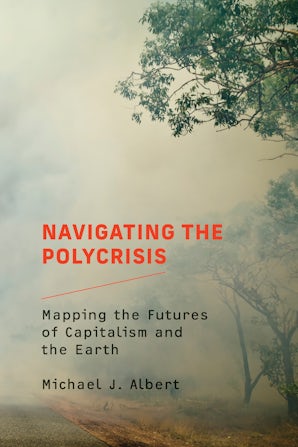A Theoretical Foundation for Critical Futures Studies

Futures studies are primarily an applied science, focusing on generating knowledge that helps individuals and organizations make informed decisions in the present. It has a particular emphasis on methodologies. When asked to define futures studies, practitioners often reference scenarios, Delphi methods, and horizon scanning, among other techniques. This focus brings specific challenges, including an under-theorization within the discipline. Almost no fundamental theories about the future exist—its essence, construction, and implications. This lack of theoretical foundation renders the field somewhat unstable. Therefore, efforts to reinforce this foundation, especially within critical futures studies (CFS), are particularly exciting.
I met Nele Fischer during the master’s program in futures studies at the Free University of Berlin. There, she co-taught a course on ‘vision assessment’ with Sascha Dannenberg, one of the supervisors for my master’s thesis. Nele is also playing a pivotal role in organizing our CFS community and was instrumental in launching our inaugural event.
Nele recently completed her dissertation, ‘Möglichkeitsräume kontingenter Gegenwarten’ (EN: ‘Possibility Spaces of Contingent Presents’), which reflects on thought frames as a theoretical and methodological foundation for critical futures studies. This work promises to be a cornerstone of future studies, offering a comprehensive framework for critically engaging with the construction of futures. Good theoretical work paves the way for methodological innovation, and I eagerly anticipate such developments.
The dissertation is available only in German, but I recommend using a translation tool to explore it for those with even a remote interest in these topics. To whet your appetite, here are some highlights:
- Social Constructivism as a Foundation: Futures are not predetermined but are shaped by societal discourse and collective interpretations, influenced by current knowledge, societal values, and narratives.
- Critical Futures Studies (CFS): Emphasizes a reflective approach to future-making, advocating for examining normative assumptions and power structures and aiming to democratize future visions.
- The Role of Thought Frames: Critical in shaping our perception of possible futures and identifying limitations to imaginative scope.
- Methodological Innovations: Introduces novel strategies for exploring future scenarios, emphasizing the importance of hermeneutic understanding and creative engagement with future possibilities.
- Reintroducing Contingency: Underlines the importance of recognizing the future’s inherent uncertainty, advocating for explorations beyond deterministic forecasts.
- Deliberation and Transformation: Promotes a deliberative process in futures studies, aiming to co-create diverse visions and societal transformation.
- Democratizing Futures: Calls for more inclusive future-making processes, pushing for equitable and just scenarios.
You can download the dissertation as a PDF or listen to Jonas and me interviewing Nele about her groundbreaking work for further exploration (both links in German).
Hi, I'm Johannes
I work as an adviser and facilitator at the intersection of strategy, design, and transformation. If you manage innovation, change, or strategy, this newsletter invites you to explore new perspectives and approaches.
Worthy of your time
Futures for Journalists Workshop
This unique workshop is designed to equip journalists, editors, freelance writers and media professionals with the tools of futuring you can apply today.
Sharpen critical skills and develop better ongoing scanning and forecasting skills to support story development, reporting and analysis of the future.
Friends Susan and Scott from Changeist have created great capacity-building offerings around Futures. Their two books, How to Future and Future Cultures, are among those I recommend when asked about introductions to futuring.
For those of you who are journalists or work in media, look at their upcoming online workshop, Futures for Journalists, on May 16-17.

Future Observatory Journal

Future Observatory Journal is a biannual online journal on design, ecology and futures. Our aim is to create a space for rethinking the frameworks within which design operates. Published by Future Observatory, the Design Museum’s national research programme for the green transition, the journal aims to expand the often narrow scope in which design and ‘sustainability’ are discussed.
It's a beauty!
Book: Navigating the Polycrisis
When somebody puts ‘futures’ in the title of their book, I'm instantly interested. Michael J. Albert— a lecturer in Global Environmental Politics at the University of Edinburgh School of Social and Political Sciences—has a new book out this month called ‘Navigating the Polycrisis – Mapping the Futures of Capitalism and the Earth’ from MIT Press.
Resilience.org has an excerpt from the book's introduction that is worth a read. Albert introduces the term ‘counter-hegemonic futures analysis:’
I argue that a theoretical framework informed by complexity theory and world-systems theory can provide a new form of critical-futures analysis capable of grappling with the polycrisis condition.
I also liked this one:
rather than ultra-specialized experts, it is the agile and curious—those who venture far outside their disciplinary comfort zones, seeking out new insights from other fields and opposing perspectives that challenge their thinking—who are best placed to connect the dots and develop more realistic maps of the future
So, if you're interested in a Marxian futures approach, the book is available as open access.

Thank you for your attention.
If you find this newsletter valuable – the best way to support it right now is to ask me a question. What interests you in the futures field? What do you want to know more about? Hit reply or use the comment section to let me know.
You can also share the newsletter with friends and colleagues who are interested in its topics.
Have a good one,
Johannes Kleske



Member discussion